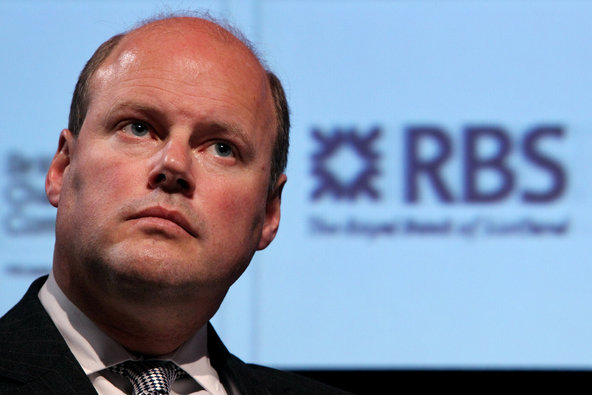Now we learn that it was based in no small part on manipulative lies by venal bankers.
The leak of audiotapes of phone conversations between top officials of Anglo Irish Bank, which was by far the worst of a very bad lot, has stunned Ireland and damaged its relations with Germany.
It now appears that the bank lied to Irish officials about how much trouble it was in when the government, at the end of September 2008, guaranteed all the bank’s liabilities.
On one tape, John Bowe, Anglo Irish’s director of the treasury, conceded that he had no rational basis for telling the government that 7 billion euros was all it would take to rescue the bank.
“If they saw the enormity of it up front, they might decide, they might decide they have a choice,” he said to his colleagues in a tape disclosed by The Irish Independent. “They might say the cost to the taxpayer is too high.”
It was important for the problem to look “big enough to be important, but not too big that it kind of spoils everything.”
The problem certainly did “spoil everything” and continues to do so. The Anglo Irish bailout turned out to cost tens of billions of euros from Irish taxpayers and the European Union. Had Irish officials acted more wisely then, the country would still be in bad shape now, but the cost to the government would be much lower. There probably would have been less need for the continuing austerity that has, once again, caused Ireland to lapse into recession.
But by then, the basic problem had been created. Ireland had inflated a property bubble far greater than the American one, and losses were going to be immense when prices collapsed. Regulators were clueless, or worse, about what was actually happening. There seems to have been no one in the government who was truly familiar with the bank. Outside experts were called in, but it is not easy during a crisis to evaluate something from scratch.
At the time, however, it was easy to think that the situation was not as bad as it turned out to be. Irish real estate prices had not collapsed — that would come soon — and it seemed possible that the problems affecting Irish banks, particularly Anglo Irish, were temporary.
The word was liquidity. If that was the only problem a bank had — if there was a temporary difficulty in raising money to reassure depositors but the underlying loans were solid — then a bailout could work with little or no long-term cost. But if the real problem was one of solvency, a bailout risked throwing good money after bad.
Two weeks before the Irish bank guarantee, the financial world was shaken by the collapse of Lehman Brothers in the United States. It showed that large financial institutions were interconnected in ways that no one had really considered before and quickly led to a consensus that the American government had erred in not somehow keeping Lehman afloat.
We now know that Lehman was broke, but at the time it appeared to have ample capital. What was missing, one leading American regulator assured me at the time, was a requirement that the bank retain sufficient liquidity to deal with a panic.
In that atmosphere, it may be understandable that Irish officials fell for the tempting story that there was no real problem, just a bit of unfounded panic. But once they did, the power shifted to the bankers. The tapes show that the bankers were furious about government delays in releasing money once the guarantee was offered.
“You’re putting the government at risk with your delays,” said David Drumm, Anglo Irish’s chief executive, in discussing what he would say to officials at a meeting. Talk of due diligence was ridiculous. Ireland had told the world “we’re all solvent.” Now, it should simply write “a two or three billion check and get on with it.”
He described such a check as “very small.” Relative to the ultimate cost, he was right.

Floyd Norris comments on finance and the economy at nytimes.com/economix.
Article source: http://www.nytimes.com/2013/07/05/business/in-ireland-dire-echoes-of-a-bailout-gone-wrong.html?partner=rss&emc=rss


